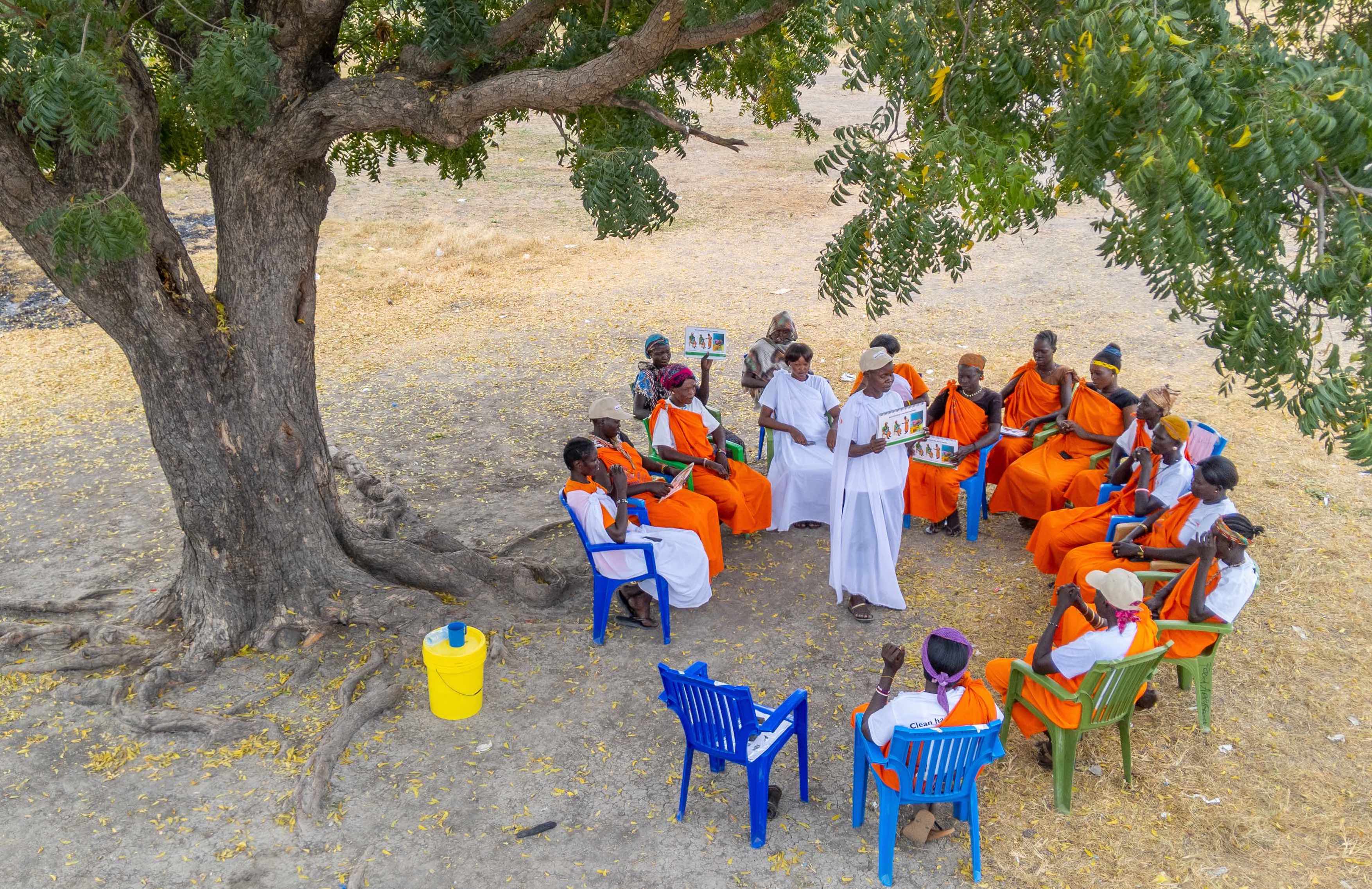World Vision experts reflect on impact of climate change on South Sudan’s health system and risks faced by millions

How does climate change worsen South Sudan’s dire condition? As a country where an estimated 75 percent of child mortality is attributed to preventable diseases such as pneumonia, diarrhea, and malaria, the link is very clear, said World Vision’s Greater Bahr El Ghazal Zonal Programme Manager Hailu Badhane. One impacts the other and leaves a suffering population.
Badhane adds, “Climate conditions exacerbate health problems because they create conducive environment for diseases during floods and other natural disasters. Add to this the reality of limited number of health workers, and lack of access to health services which are direly lacking in South Sudan.”
Juba Nutrition Project Manager Komakech Mandela seconded Badhane. “During the dry season, people do not have enough clean water supply, which results to increased incidence of diseases such as diarrhea, especially among children. World Vision’s community volunteers are doing their best to educate people on water and sanitation practices”, he says.

The 2022 Humanitarian Needs Overview highlighted that 5.5 million people, 52 percent of these children, are in need of access to services. The report said that “The weakened South Sudan’s health system relies heavily on international humanitarian assistance and is still unable to cope and respond to humanitarian emergencies and provide basic essential life-saving health services.”
In 2021, World Vision’s health initiatives in South Sudan supported 112 government health facilities and two mobile outreach clinics in partnership with the Ministry of Health (MOH). Over 551,609 children were able to avail of curative consultations, and 12,689 women provided with antenatal services.
While these projects were staffed by 100 personnel with the support of 1,700 seconded staff from MOH, Health and Nutrition Manager Stephen Epiu said one of the biggest challenges is the shortage of qualified health workers during natural and man-made disasters, from flooding to displacements due to communal conflicts.
Women and children walk for long distances to access health services and are often exposed to protection threats such as rape, abductions, and even killing.
Epiu says, “We need to train more staff who can respond to the urgent health needs during emergencies, but at the same time, we also must advocate for peace and invest more in programs that counter or address the effects of global warming.”
“I would like to highlight poor access to health services as a serious threat to children’s health. Many of the facilities are not fully equipped, lack medicines and professional health workers. Women and children walk for long distances to access services and are often exposed to protection threats such as rape, abductions, and even killing”, adds Advocacy and Protection Manager Betty Adong.
“Pregnant mothers suffer from anaemia and pregnancy-related complications because of insufficient vitamins in the body that support fetal development, hence leading to premature births or miscarriages. One mother told me that their food intake is based on quantity and what is available rather than quality”, she further adds.

This echoes UNICEF’s call for an “Increase investment in climate adaptation and resilience in key services for children. To protect children, communities and the most vulnerable from the worst impacts of the already changing climate, critical services must be adapted, including water, sanitation and hygiene systems, health and education services.”
“While this can be taken granted in many developed countries, the proximity of health facilities can mean a lot for women and children. If they have easy access, women are empowered to make choices on their reproductive health, the children can be treated in an environment free from harm, and mortality rate can be reduced if not completely prevented”, Adong concludes.
On World Health Day, we envision South Sudan’s children to grow healthy, safe from the dangers of climate risks, and become productive citizens. We have a long way to go, but nothing is impossible if we do it together.
By Cecil Laguardia, Senior Manager for Advocacy and Communications I Photos by Eugene Combo & Christopher Lete/Communications